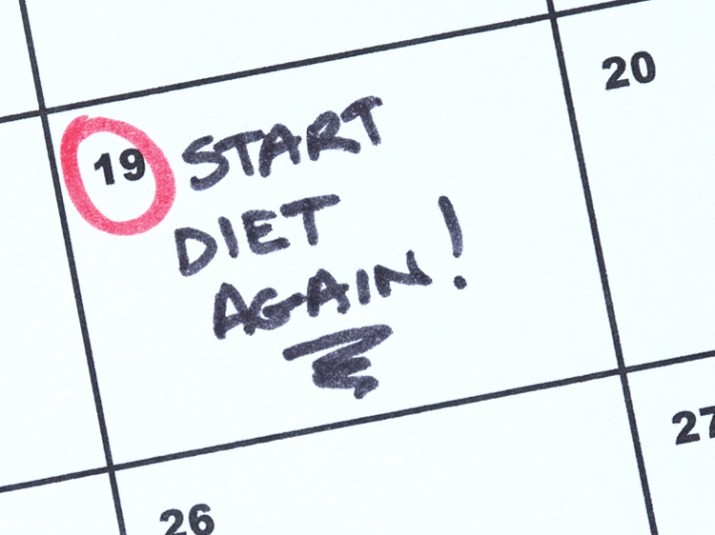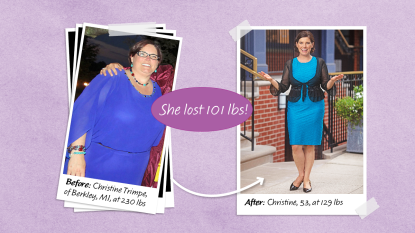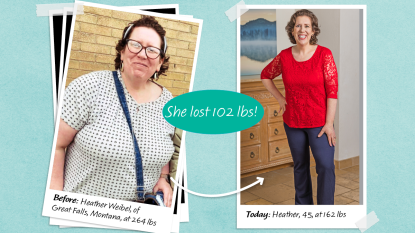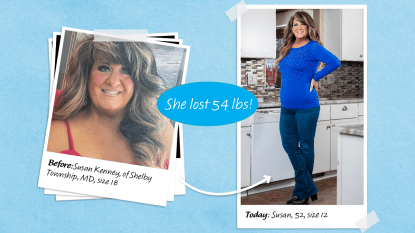A Two-Week Break From Dieting May Help With Weight Loss, Study Suggests

It’s no surprise that many people go on diets to lose weight. But recent research suggests that taking a break from dieting may be key to weight loss success, not to mention keeping those stubborn pounds off for good.
In a study published by the International Journal for Obesity, researchers looked at two groups of participants on a 16-week diet that cut calorie intake by one-third. While one group of dieters followed this plan continuously for 16 weeks in a row, the other group followed the diet intermittently. (This is not to be confused with intermittent fasting, which involves going for certain periods of time without any food.) In the context of this study, the intermittent diet involved maintaining the calorie-cutting diet for two weeks and then breaking from the diet for two weeks afterward by eating simply to keep a stable weight. Then, these intermittent dieters repeated this same cycle for 30 weeks to ensure that 16 total weeks of the calorie-cutting diet were included.
As it turned out, the folks in the intermittent diet group not only lost more weight by the end of the study, but also gained less weight after the trials were over. Furthermore, these same intermittent dieters maintained an average weight loss of 17.6 pounds more than the continuously dieting group six months after the dieting period was done.
Lead author Nuala Byrne, PhD, explained in a press release that dieting can actually change a series of biological processes in the body, which may lead to slower weight loss and perhaps even weight gain in some cases.
“When we reduce our energy (food) intake during dieting, resting metabolism decreases to a greater extent than expected; a phenomenon termed ‘adaptive thermogenesis’ — making weight loss harder to achieve,” said Dr. Byrne. “This ‘famine reaction,’ a survival mechanism which helped humans to survive as a species when food supply was inconsistent in millennia past, is now contributing to our growing waistlines when the food supply is readily available.”
While more research is needed, this study may point to a possible way to lessen this “famine reaction” and hopefully lead to lasting weight loss results for more people. Remember: Always talk to your doctor before starting any new diet, especially a restrictive one.
More From FIRST
9 Surprising Foods That Need to Be Refrigerated
11 Healthy Casserole Recipes to Comfort You in the Bitter Cold
7 Common Dieting Mistakes to Avoid If You’re Trying to Get Healthy













